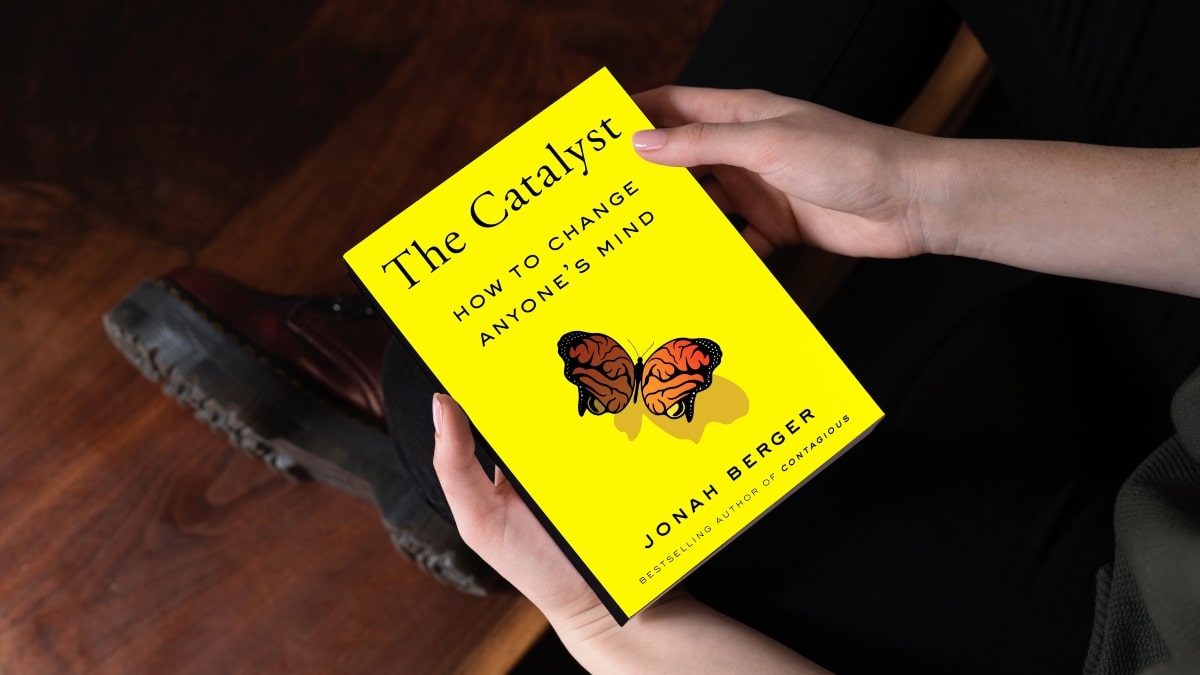This is the third book by Jonah Berger that I have enjoyed and the second that I found benefit from enough to write a book review. So useful was it, that I used its principles the very day I finished it to form the structure of a marketing and website content strategy for a client experiencing inertia in their potential client base. This book explores barriers to change and how to overcome them not only in business but sociologically and personally.
It can be difficult to change someone’s mind, even when we know we’re right. We all have our biases and preconceptions that can cloud our judgment and make it hard to see things from another perspective. In his book The Catalyst, Jonah Berger explores the science of persuasion and reveals how we can overcome the barriers to change.
Berger begins by discussing the importance of understanding why people hold on to their opinions so stubbornly. He then delves into the psychology of persuasion, explaining how emotions, social pressure, and other factors influence our decisions. Finally, he offers practical tips for changing minds, whether we’re trying to convince a friend or colleague to see things our way or persuade a large group to adopt a new policy.
The book explores five barriers to change: Reactance, Endowment, Distance, Uncertainty, and Lack of Evidence. Each is dedicated a chapter and ends with a very useful case study. I found this structure refreshing as some business books can be all case studies and little science, whereas this is focused on the science while the case study illustrates it at the end.
Reactance is the tendency for people to resist change when they feel that their freedom is being threatened. When we feel like we’re being pressured to do something, we often react by doing the opposite, even if it’s not what we want to do. People have an anti-persuasion defence mechanism, we need to overcome that by encouraging people to convince themselves.
Endowment is the idea that we value something more if we already own it. This is why people are often reluctant to give up something they have, even if they don’t really want it. We need to find a way to make the thing we’re trying to persuade people to adopt seem like something they already have or are familiar with. Think about car dealers that allow long-term test drives.
Distance is the idea that we’re more likely to change our minds about something if it’s close to us in some way. If we can find a way to make the thing we’re trying to persuade people to adopt seem closer to them, they’ll be more likely to consider it.
Uncertainty is the idea that we’re more likely to change our minds about something if we feel confident about it. If we can find a way to make the thing we’re trying to persuade people to adopt seem certain, they’ll be more likely to consider it. Free trials and case studies are useful here.
Lack of Evidence is the idea that we’re more likely to change our minds about something if we have evidence that it’s true. If we can find a way to provide evidence for the thing we’re trying to persuade people to adopt, they’ll be more likely to believe it. Social proof such as reviews, testimonials, and demonstrations of peer use of a product or service can serve well here.
Berger offers many other useful insights and tips throughout the book, including how to use social proof, authority, and scarcity to influence people, and how to make your message more persuasive. The Catalyst is an essential read for anyone who wants to understand the science of persuasion and how to use it to change minds. It forms a trilogy of books in this area with Contagious and Invisible Influence. Very useful for marketers and marketing strategists.




